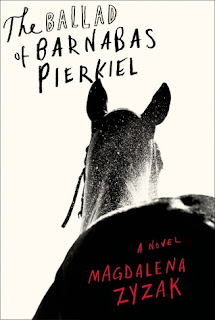The Ramblings of a Lonely Stranger
By G.H. Monroe
I should probably say that I may be somewhat biased
about this author’s poetry as he is a member of the writer’s group I run
through our library. However, I feel
that pulls out imagery and concepts that are eminently relatable.
“Poetry is like a special cable that allows me to
share the aches, joys and longings of my soul with the souls of others.” Those
are aches, joys and longings that many of us have felt and described in a
beautiful way.
“I believe that a poem is born in a moment of feeling
or inspired thought.”
“Someone says something that stirs a feeling in me,
something that makes profound sense to me, deep within my soul, and I think,
“That’s a poem!”
This is a short volume, a collection of some of those
poems. Capturing people, feelings, moments in time. Inspiration.
I’ll share my take on ten of my favorite poems from
this collection.
Big
Wes
– the loss of a father and how it comes back upon the son time and time again.
“In that moment it hits me like a steel-toed kick to the midsection and all of
the wind leaves my soul.”
That’s an incredibly vivid sensory image of being
punched but taken into the metaphysical by the wind leaving the soul instead of
the lungs or diaphragm. The simple change up bothers, irritates. I’m not sure I
like it but it gets under the skin.
Losing
Mother – Not just in the physical sense but as she loses her
faculties, losing the mother that he knew. “I see you hoping, no, longing, that
one might drift down to the dry ground and spark the raging fires of your
recollection.” A mournful and painful image, aching for the way things used to
be.
Fine
Art
– I like this one for not just the appreciation of beauty but of the manners
that make one FEEL the beauty. “Your focus, like your manner, is soft.” And
“The gentle smile, the downy shoulders and indulgent eyes.” The indulgent eyes
speak of the subjects manner rather than their physical characteristics, but
both are what make her beautiful to the observer.
Deliverance
–
A poetic turn of phrase helps the reader experience the oppressiveness of the
summer air before a storm. “The stifling shroud that hangs in the summer air
brings burden to even the simplest of acts.” “Breaths come with difficulty, as
if drawn through plastic wrap.” Then the cool relief of a thunderstorm sweeps
through. “This breeze, pregnant with the scent of distant lakes, holds the
promise of cool, wet relief.” Who hasn’t smelled that water in the air? It is
one of my favorite scents, wish they could capture THAT in an air freshener!
Summer
in a Jar – A collection of simple couplets, like glasses being
poured. Twilight hours, dinner, lawn chairs, lemonade in a glass with ice, sun
setting, children chasing fireflies. It’s an unusual sort of poetry for Monroe,
but well-chosen for this poem. “They play and laugh, both near and far,
catching summer . . . in a jar.”
Forever
Road
– Begins with a musing on the frailty of humans, how our memories are flawed
and we lose the most precious experiences all too readily. A moment caught in
time, driving down the road with a beautiful woman, wishing the road could go
on forever. But if memory goes on, then can these moments persist? “Perhaps . .
. if I can keep just this one memory . . . it might.”
A
Million Prayers – “Miss me please, as I miss you, wonder
if I’m well.” “ . . . foolishly, I hold out hope to write a kinder end.” Cuts
to the quick.
Life
in Two Days – “Our lives are lived in two days.” The
author speaks of the impatience of youth using well-chosen almost universal longings
– Christmas, license, graduation. Then he uses the snooze button image to move
us suddenly forward in time. “…find ourselves smack in the middle of life’s
second day, whose hours pass like the blurred faces on a training racing past.”
So true, waiting, waiting, waiting and now the days rush past. “We begin to
hear each grain of sand crash to the bottom of our mortal hourglasses.” (I wish
that had been hourglass instead of hourglasses.)
Slow
Violence – A poem on how media loves the flashy violence but
has no interest in in the slow violence of the things that hurt us in the long
term. I agree but I also think it’s part of our nature, how we lose track of
the long term problems when we feel helpless to change them.
“Thousands homeless and hungry? Humans too poor for
medical care? Reel in the news trucks, go back to your regularly scheduled
lives. There’s nothing more to see here.”
But is it because we don’t care or because we have to
cope with our own lives and don’t see what we can do? Perhaps a little of both.
As the author once said to me, “I care, just perhaps not as much as you do
about the things that directly affect you.”
I
Hate You for That – “My walls are sturdy, they are tall. Tirelessly,
I add more stones each day, yet every day you peek over the top . . . and I
hate you for that.” Love it! The introvert and the extrovert tearing down his
wall.
A great collection of poetry to help you feel
connected to the rest of the world.










